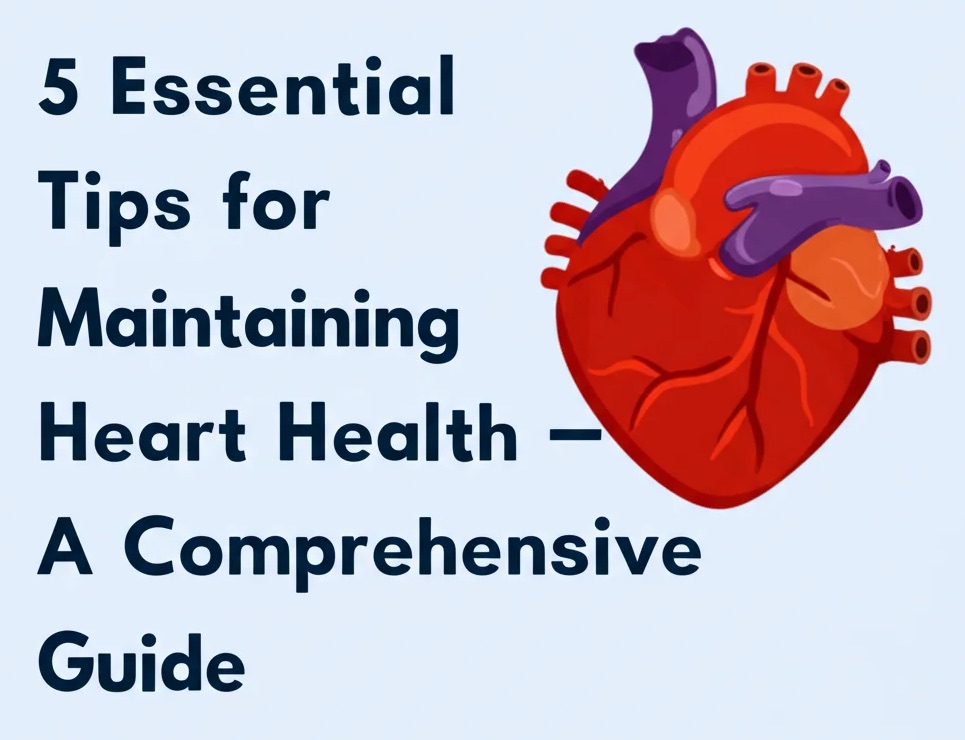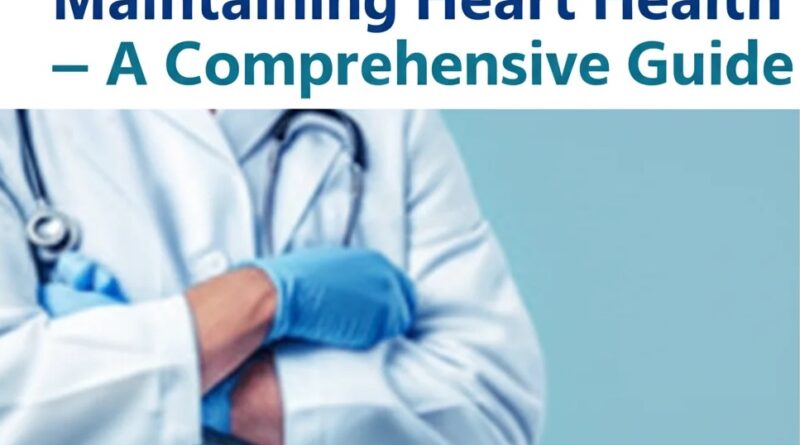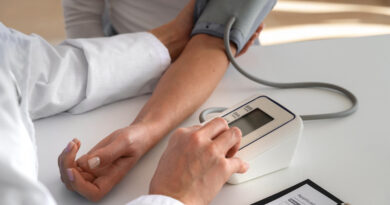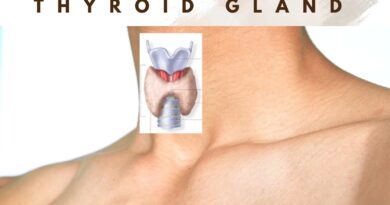5 Essential Tips for Maintaining Heart Health – A Comprehensive Guide

Introduction
Heart disease remains the leading cause of death globally, yet many risk factors are preventable through lifestyle changes, early detection, and proper medical care. At Jayyush Hospital, we believe preventive cardiology is the cornerstone of long-term heart health.
This in-depth guide explores five scientifically backed strategies to strengthen your cardiovascular system, reduce disease risk, and enhance overall well-being. Whether you’re looking to improve your diet, increase physical activity, or manage stress, this resource provides actionable, expert-approved advice.
1. Adopt a Heart-Healthy Diet
Why Nutrition Matters
A balanced diet directly impacts cholesterol levels, blood pressure, and inflammation—key factors in heart disease.
Key Dietary Recommendations
✅ Increase Fiber Intake
- Whole grains (oats, quinoa, brown rice)
- Legumes (beans, lentils)
- Fruits (berries, apples) & vegetables (spinach, broccoli)
✅ Choose Healthy Fats
- Monounsaturated fats (avocados, olive oil)
- Omega-3 fatty acids (fatty fish like salmon, walnuts)
- Avoid trans fats (found in fried & processed foods)
✅ Reduce Sodium & Added Sugars
- Limit salt intake to <2,300 mg/day (ideally 1,500 mg for high-risk patients)
- Avoid sugary drinks & refined carbs
The Mediterranean Diet – A Gold Standard
Studies show this diet reduces heart attack risk by 30% due to its emphasis on:
- Olive oil
- Nuts & seeds
- Lean proteins (fish over red meat)
2. Stay Physically Active
How Exercise Benefits the Heart
- Lowers blood pressure
- Improves circulation
- Reduces LDL (“bad” cholesterol)
- Helps maintain a healthy weight
Recommended Exercise Routine
- Cardio: 150 mins/week (brisk walking, cycling, swimming)
- Strength Training: 2x/week (resistance bands, weightlifting)
- Flexibility & Balance: Yoga or stretching
Tips for Sedentary Individuals
- Take short walks every hour
- Use stairs instead of elevators
- Try low-impact exercises if joint pain is a concern
3. Monitor Blood Pressure & Cholesterol
Understanding Key Metrics
| Measurement | Ideal Range | Risk Zone |
|---|---|---|
| Blood Pressure | <120/80 mmHg | >140/90 mmHg (Hypertension) |
| LDL Cholesterol | <65 mg/dL | >130 mg/dL (High Risk) |
| HDL Cholesterol | >60 mg/dL | <40 mg/dL (Low Protection) |
Preventive Screenings at Jayyush Hospital
- Lipid profile tests
- ECG & stress tests
- Personalized risk assessments
4. Manage Stress Effectively
The Heart-Stress Connection
Chronic stress elevates cortisol, increasing:
- Blood pressure
- Inflammation
- Risk of arrhythmias
Stress-Reduction Techniques
- Mindfulness meditation (10 mins/day)
- Deep breathing exercises (4-7-8 technique)
- Adequate sleep (7-9 hours nightly)
5. Avoid Smoking & Limit Alcohol
Tobacco’s Impact on Heart Health
- Doubles heart attack risk
- Damages blood vessels
- Lowers HDL (“good” cholesterol)
Alcohol Moderation Guidelines
- Men: ≤2 drinks/day
- Women: ≤1 drink/day
- Excessive drinking raises triglycerides & blood pressure
FAQ Section
1. How often should I get my heart checked?
- Ages 20-39: Every 4-6 years (if no risk factors)
- Ages 40+: Every 1-2 years
- High-risk patients: Annual screenings
2. Can heart disease be reversed?
Yes! Lifestyle changes + medication can reduce plaque buildup and improve function.
3. What are the early warning signs of heart trouble?
- Chest pain/discomfort
- Shortness of breath
- Fatigue
- Swelling in legs
4. Is dark chocolate good for the heart?
In moderation (70%+ cocoa), it improves blood flow due to flavonoids.
5. Does stress alone cause heart attacks?
Not directly, but it worsens other risk factors like hypertension.
Conclusion
Prioritizing heart health today can prevent complications tomorrow. At Jayyush Hospital, our cardiology team combines cutting-edge diagnostics with personalized care plans to keep your heart strong.
📞 Schedule a preventive heart check-up today! Contact Jayyush Hospital




